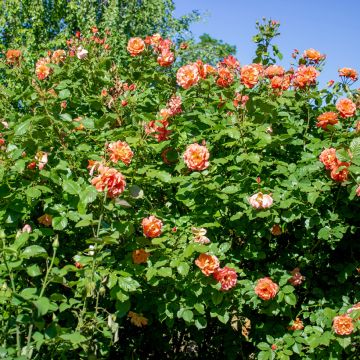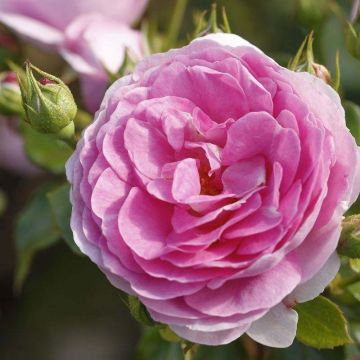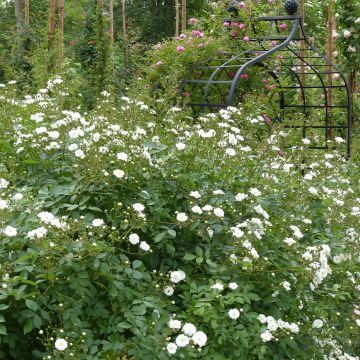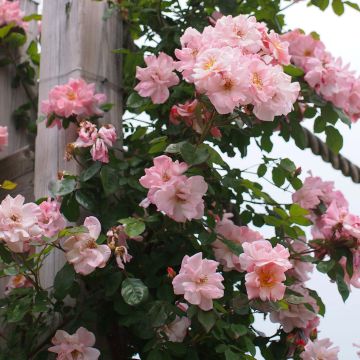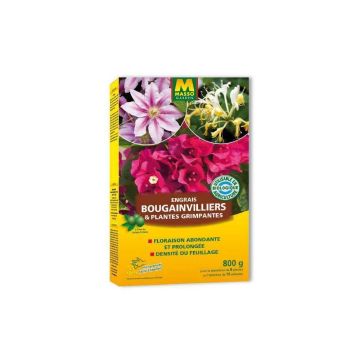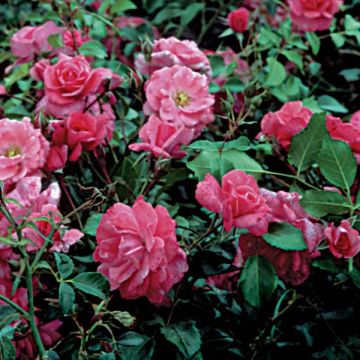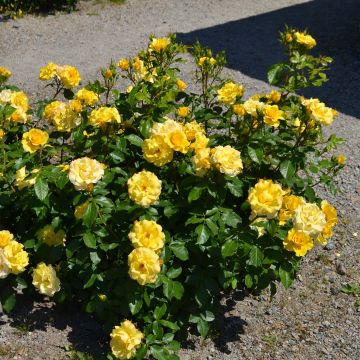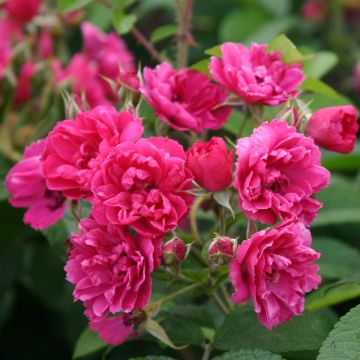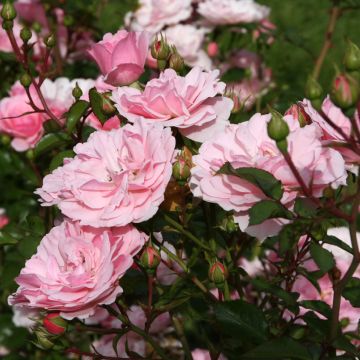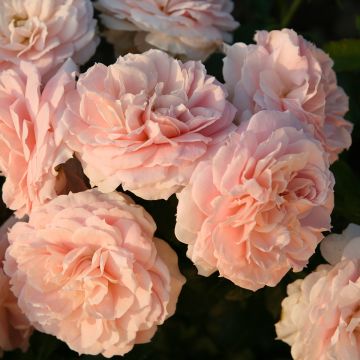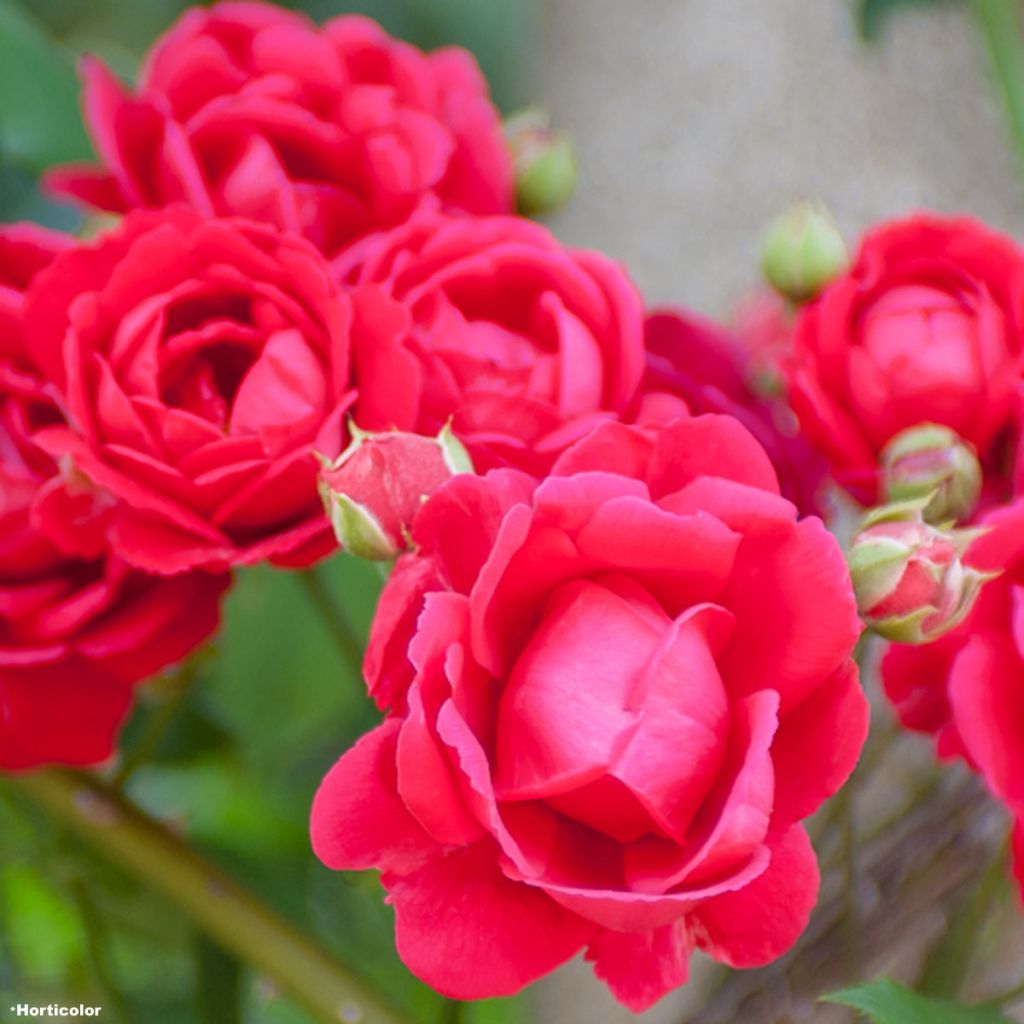

Rosa Pauls Scarlet Climber
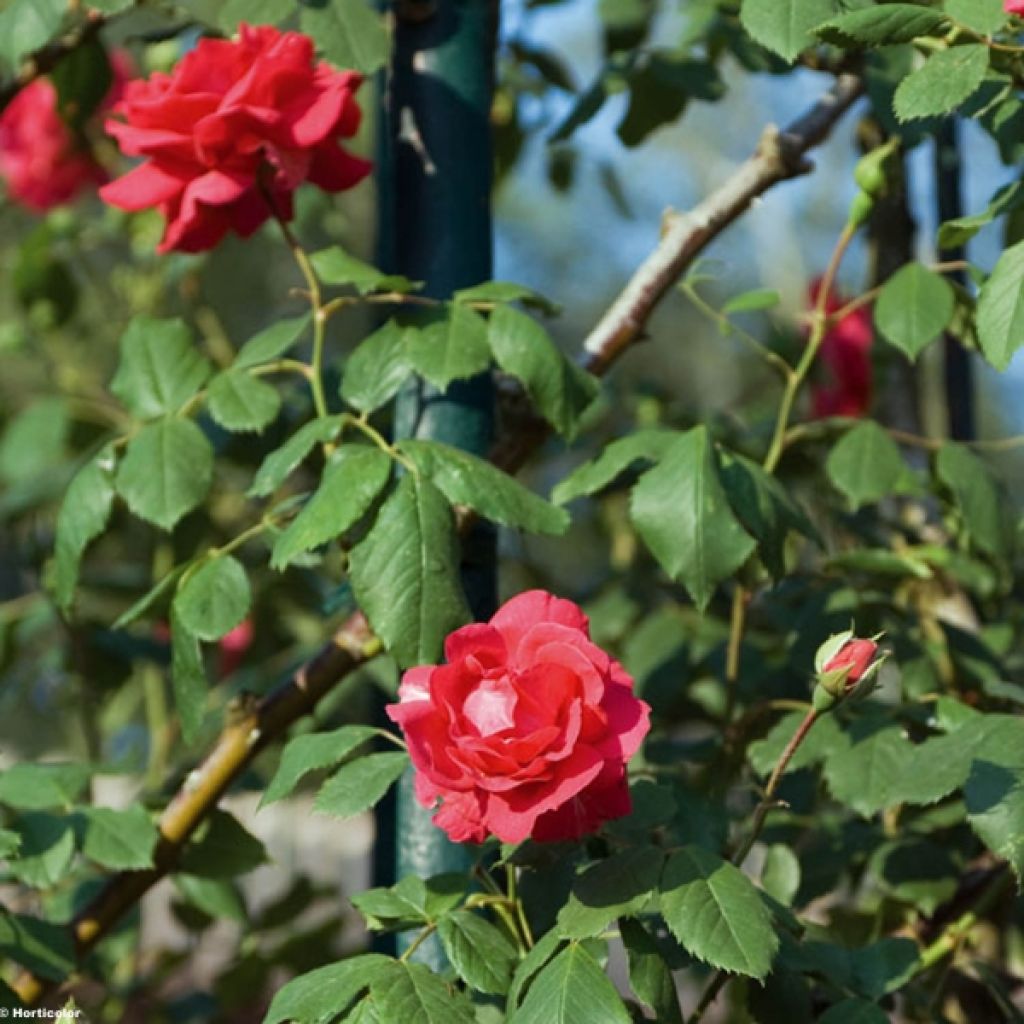

Rosa Pauls Scarlet Climber
Rosa Pauls Scarlet Climber
Rosa Paul's Scarlet Climber
This item cannot be shipped to the selected country
Delivery charge from €5.90
Delivery charge from €5.90
Delivery to Corse prohibited
More information
Schedule delivery date,
and select date in basket
This plant carries a 6 months recovery warranty
More information
We guarantee the quality of our plants for a full growing cycle, and will replace at our expense any plant that fails to recover under normal climatic and planting conditions.
From €5.90 for pickup delivery and €6.90 for home delivery
Express home delivery from €8.90.
From €5.90 for pickup delivery and €6.90 for home delivery
Express home delivery from €8.90.
Delivery to Corse prohibited: UE law prohibits the import of this plant from mainland France to Corse as part of the fight against Xylella fastidiosa. Please accept our sincere apologies.
More information


Does this plant fit my garden?
Set up your Plantfit profile →
Description
Rosa 'Paul's Scarlet Climber' is one of the brightest and most popular climbing roses since its introduction in 1916. Although it only blooms once, in May-June, it does so with incomparable generosity and in a cherry-red colour as vibrant as it is charming. Its subtly fragrant flowers open in generous clusters that gracefully bend its flexible branches, and can be spotted from afar in the garden. The plant is hardy and robust, despite being slightly susceptible to blackspot. This variety has been awarded by the Royal Horticultural Society.
Rosa 'Paul's Scarlet Climber' is an English creation by William Paul. It is quite difficult to classify: often considered a hybrid tea rose, it is also linked to climbing polyantha or floribunda roses, descendants of the multiflora rose, as well as the unruly wichuraiana rose. It is the result of a cross between the Noisette rose 'Rêve d'Or' (Ducher, 1869), from which it inherited the flower shape, and 'Paul's Carmine Pillar' (Paul, 1896), a hybrid polyantha rose that passed on its superb red colour.
In 1915, 'Paul's Scarlet Climber' was awarded a gold medal by the Royal National Rose Society (RNRS). In 1918, it received another gold medal at the Bagatelle Rose Days, and in 1999, it was rewarded at the Canadian Huronia Rose Society Show.
This climbing rose is vigorous, reaching 3 to 4m (10 to 13ft) in height and 3m (10ft) in width within a few years. Its wood is flexible and sparsely thorny, and it bears dark green deciduous foliage composed of leaves divided into 3 to 5 large leaflets with a finely toothed margin. After the spring flowering, it is not uncommon for it to be susceptible to blackspot, especially in humid climates, or powdery mildew in dry situations, without causing significant damage to the plant if it is well-fed and watered. Its abundant flowering takes place in May-June, and lasts for 3 or 4 weeks. The flowers, 6 to 7cm (2 to 3in) wide, are semi-double to double, with about 30 petals arranged in cups and grouped in tight clusters of 3 to 6. They are scarlet red when they first open, then turn an extremely bright and warm pink-red. The flowering is followed by the formation of numerous small fruits called hips, which are appreciated by birds. The hips persist until late winter.
'Paul's Scarlet Climber' is easy to grow and extremely rewarding. It can beautifully adorn pergolas, walls, or fences. Pair your climbing rose with a large-flowered clematis ('Etoile Violette', 'Mayleen', or 'Broughton Star') whose summer flowering will take over: the combination of these two plants works perfectly. Red-flowered roses also pair well with white roses (Aimée Vibert, Iceberg), mauve roses (Claude Brasseur, Rhapsody in Blue, Sissi), pink roses (Madame Caroline Testout, New Dawn), or purple roses (Guinée, Sénégal, Burgundy Ice).
Created by William Paul in 1915.
Report an error about the product description
Plant habit
Flowering
Foliage
Botanical data
Rosa
Paul's Scarlet Climber
Rosaceae
Cultivar or hybrid
Other Climbing Roses
Planting and care
'Paul's Scarlet Climber' appreciates and blooms best in a sunny location, but it also tolerates partial shade. It will adapt to any garden if the soil is well-worked and sufficiently rich. To plant your rose, work the soil, crumble it well, and place an amendment (dried blood or dehydrated horn) at the bottom of the planting hole. Water generously after planting to eliminate air pockets. Water regularly for a few weeks to facilitate root growth.
Roses are often stained or unsightly at the end of summer, but this does not affect their development. These spots are not harmful to the rose and are a natural phenomenon.
Planting period
Intended location
Care
-
, onOrder confirmed
Reply from on Promesse de fleurs
Roses by purpose
Haven't found what you were looking for?
Hardiness is the lowest winter temperature a plant can endure without suffering serious damage or even dying. However, hardiness is affected by location (a sheltered area, such as a patio), protection (winter cover) and soil type (hardiness is improved by well-drained soil).

Photo Sharing Terms & Conditions
In order to encourage gardeners to interact and share their experiences, Promesse de fleurs offers various media enabling content to be uploaded onto its Site - in particular via the ‘Photo sharing’ module.
The User agrees to refrain from:
- Posting any content that is illegal, prejudicial, insulting, racist, inciteful to hatred, revisionist, contrary to public decency, that infringes on privacy or on the privacy rights of third parties, in particular the publicity rights of persons and goods, intellectual property rights, or the right to privacy.
- Submitting content on behalf of a third party;
- Impersonate the identity of a third party and/or publish any personal information about a third party;
In general, the User undertakes to refrain from any unethical behaviour.
All Content (in particular text, comments, files, images, photos, videos, creative works, etc.), which may be subject to property or intellectual property rights, image or other private rights, shall remain the property of the User, subject to the limited rights granted by the terms of the licence granted by Promesse de fleurs as stated below. Users are at liberty to publish or not to publish such Content on the Site, notably via the ‘Photo Sharing’ facility, and accept that this Content shall be made public and freely accessible, notably on the Internet.
Users further acknowledge, undertake to have ,and guarantee that they hold all necessary rights and permissions to publish such material on the Site, in particular with regard to the legislation in force pertaining to any privacy, property, intellectual property, image, or contractual rights, or rights of any other nature. By publishing such Content on the Site, Users acknowledge accepting full liability as publishers of the Content within the meaning of the law, and grant Promesse de fleurs, free of charge, an inclusive, worldwide licence for the said Content for the entire duration of its publication, including all reproduction, representation, up/downloading, displaying, performing, transmission, and storage rights.
Users also grant permission for their name to be linked to the Content and accept that this link may not always be made available.
By engaging in posting material, Users consent to their Content becoming automatically accessible on the Internet, in particular on other sites and/or blogs and/or web pages of the Promesse de fleurs site, including in particular social pages and the Promesse de fleurs catalogue.
Users may secure the removal of entrusted content free of charge by issuing a simple request via our contact form.
The flowering period indicated on our website applies to countries and regions located in USDA zone 8 (France, the United Kingdom, Ireland, the Netherlands, etc.)
It will vary according to where you live:
- In zones 9 to 10 (Italy, Spain, Greece, etc.), flowering will occur about 2 to 4 weeks earlier.
- In zones 6 to 7 (Germany, Poland, Slovenia, and lower mountainous regions), flowering will be delayed by 2 to 3 weeks.
- In zone 5 (Central Europe, Scandinavia), blooming will be delayed by 3 to 5 weeks.
In temperate climates, pruning of spring-flowering shrubs (forsythia, spireas, etc.) should be done just after flowering.
Pruning of summer-flowering shrubs (Indian Lilac, Perovskia, etc.) can be done in winter or spring.
In cold regions as well as with frost-sensitive plants, avoid pruning too early when severe frosts may still occur.
The planting period indicated on our website applies to countries and regions located in USDA zone 8 (France, United Kingdom, Ireland, Netherlands).
It will vary according to where you live:
- In Mediterranean zones (Marseille, Madrid, Milan, etc.), autumn and winter are the best planting periods.
- In continental zones (Strasbourg, Munich, Vienna, etc.), delay planting by 2 to 3 weeks in spring and bring it forward by 2 to 4 weeks in autumn.
- In mountainous regions (the Alps, Pyrenees, Carpathians, etc.), it is best to plant in late spring (May-June) or late summer (August-September).
The harvesting period indicated on our website applies to countries and regions in USDA zone 8 (France, England, Ireland, the Netherlands).
In colder areas (Scandinavia, Poland, Austria...) fruit and vegetable harvests are likely to be delayed by 3-4 weeks.
In warmer areas (Italy, Spain, Greece, etc.), harvesting will probably take place earlier, depending on weather conditions.
The sowing periods indicated on our website apply to countries and regions within USDA Zone 8 (France, UK, Ireland, Netherlands).
In colder areas (Scandinavia, Poland, Austria...), delay any outdoor sowing by 3-4 weeks, or sow under glass.
In warmer climes (Italy, Spain, Greece, etc.), bring outdoor sowing forward by a few weeks.



































